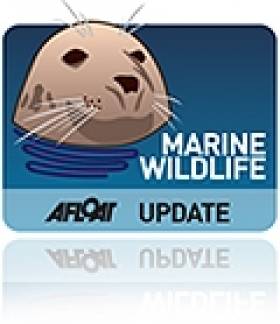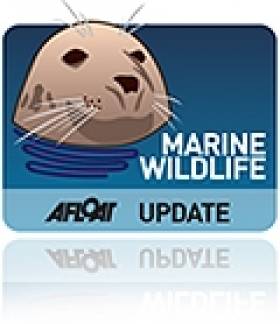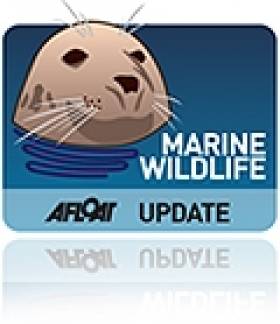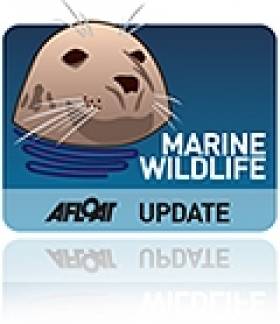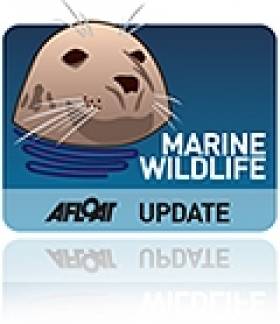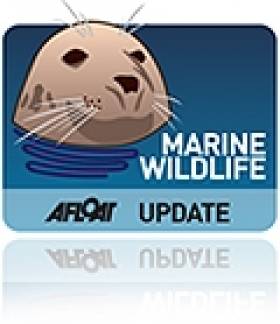Displaying items by tag: ISS
Fears Over Illegal Cull as Seals, Dolphin Die on Waterford Beach
#MARINE WILDLIFE - Fears are growing of an illegal cull of marine wildlife after a seal and dolphin were discovered dead on a Waterford beach - just hours after two seals were found dying from bullet wounds in the same location.
TheJournal.ie reports that the wounds on the two animals found on Tramore Beach on Thursday are also believed to be from gunshot.
Two grey seals were euthanised the previous evening after they were discovered gravely injured with "horrific" wounds on the same beach.
A spokesperson for the Irish Seal Sanctuacy (ISS) has called for a post-mortem of the animals to determine the exact cause of death - but pointed the finger at an illegal cull allegedly carried out by local fishermen.
"We’re not against a properly regulated cull," said the ISS's Johnny Woodlock, "but it’s the guy who goes out with a shotgun and takes potshots, that’s what we’re against.”
TheJournal.ie has more on the story HERE, including an image that many may find distressing.
Seriously Ill Seal Pup Now In Recovery
#MARINE WILDLIFE - A harbour seal pup found in a serious condition in Balbriggan last week is new recovering in the care of the Irish Seal Sanctuary.
Colin, as he has been named by ISS volunteers, was discovered on Kings Beach suffering from blood loss and breathing problems, the Fingal Independent reports.
An ISS spokesperson remarked that it was "very unusual" to find harbour seal pups this late in the year, and in an area dominated by colonies of grey seals.
Thanks to medicine donated by the Dogs Aid veterinary clinic in north Dublin, Colin is now "making great progress" though full recovery will take some time.
The seal pup will remain in the care of the ISS until he is fit enough to be returned to Balbriggan for release.
Common Seal Pups Rescued in Dublin
#MARINE WILDLIFE - Seal pups Rebecca and Emma had a curious audience of tourists at Malahide Castle earlier this month as they prepared for their relocation to Dingle, where they will be cared for by Irish Seal Sanctuary (ISS) volunteers.
The pups were rescued from different parts of north Dublin. Both were found very ill at the time, but according to the ISS, volunteers rallied to their support, providing much needed fluids for rehydration before their long journey south.
Rebecca is named after the daughter of her rescuer, ISS volunteer and Howth businessman Jon Cooke. Meanwhile, Emma was rescued by one of the founder members of the ISS, Johnny Woodlock, from the beach in Skerries.
The ISS added that it is grateful for the sponsorship of the rehab season the Dingle Wildlife and Seal Sanctuary is providing for the seal pups' care.
Seal Sanctuary Pulls Out of Courtown
The Irish Seal Sanctuary (ISS) is leaving Courtown after being unable to reach agreement on the lease for its premises.
Founder and co-director Brendan Price told The Irish Times last Monday that the group had been "locked out" of its facility in the Co Wexford town for over a month after a dispute with its landlords Gorey-Courtown Forest Park.
It was then confirmed by the Gorey Guardian on Monday evening that the ISS would no longer operate out of Courtown due to "irreconcilable differences" over the signing of the lease.
"The lease they offered us was impossible for us to sign," said ISS spokesperson Pauline Beades. "It was only an 11-month lease. To have consistency of operations we had to have longer than that."
The ISS only moved to Courtown last year at the invitation of the Forest Park board, which invested €250,000 in the premises.
Seal pups in the care of the sanctuary will now have to be transferred to facilities in Dingle, Portaferry in Co Down and Cornwall.
The Irish Times and Gorey Guardian have more on the story HERE and HERE.
Three Seals Set For Release This Weekend
The Irish Seal Sanctuary (ISS) is gearing up for three seal releases this coming weekend.
On Saturday 5 February ISS volunteers in tandem with the Dingle Wildlife and Seal Sanctuary will release Rupert and Rosie back into the wild at Beal Ban Beach in Ballyferriter, Co Kerry.
The two grey seal pups were rescued from the Dun Chaoin area last November within days of each other, the male pup with several injuries. Both now rehabilitated, it's expected they will rejoin the grey seal colony just off the Dingle Peninsula.
Then on Sunday 6 February the ISS will release another grey seal pup, Mary, from Kilpatrick Beach in Castletown, Co Wexford.
For more details on these releases visit www.irishsealsanctuary.ie
Seal Sanctuary Sees Off Latest Releases
The Irish Seal Sanctuary celebrated the release of six grey seal pups from two different locations last weekend.
Dustin, Phoenix and Sean were released from Courtown Harbour, while Buddy Holly, Louise and Cookie were put into the water in Ballyferriter, Co Kerry with help from the Dingle Wildlife and Seal Sanctuary.
Sarah Forde, a volunteer at the Dingle sanctuary, told the Irish Independent that Buddy Holly was just 11kg in weight when he was brought in last October.
"Now, three months later, he's a healthy 44kg, the proper weight for a pup his age and in the next two years as he reaches maturity he'll grow to around 300kg," she said.
Louise and Cookie (pictured HERE) were found in a similar condition in beaches in Co Kerry after being abandoned by their mothers.
The Irish Seal Sanctuary's next release will be this Saturday 15 January when Cecil and Snowy, two seal pups rescued in Belmullet and rehabilitated at the sanctuary in Courtown, will be returned to the wild at Falmor Beach, Black Sod, Co Mayo.


























